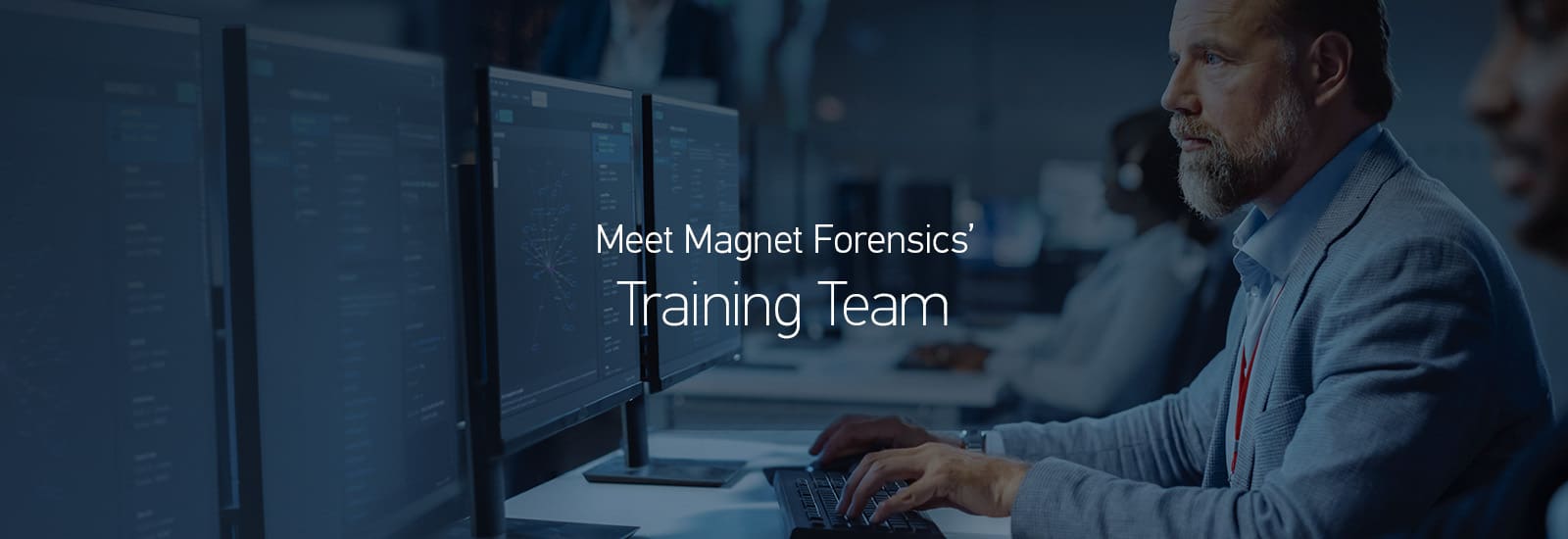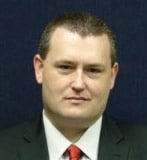
Meet Magnet Forensics’ Training Team: Christopher Cone
 We conclude our “Meet the Forensic Trainer” series this year by introducing Chris Cone, new to Magnet Forensics’ Training Team as of October.
We conclude our “Meet the Forensic Trainer” series this year by introducing Chris Cone, new to Magnet Forensics’ Training Team as of October.
Chris comes to us from an extensive background in Arkansas law enforcement and, as a trainer, thrives on a strong two-way class discussion. Read on below!
Want to learn more about what courses are offered? Visit our Training & Certification page for more information.
MF: Tell us about your life before becoming a Trainer.
CC: I worked in law enforcement for twenty years, starting at a local police department outside of Little Rock, Arkansas in 1998. I later moved to the Pulaski County Sheriff’s Office in Little Rock and finished my career at the Arkansas Attorney General’s Office where I worked in the Cyber Crimes Unit supporting our state Internet Crimes Against Children task force.
MF: What made you want to be a Trainer?
CC: I’ve worked as a law enforcement instructor for most of my career and have always enjoyed that role. While working in the Cyber Crimes Unit at the AG’s office, I was asked to create a course for electronic evidence preservation and on-scene device triage for the Criminal Justice Institute of the University of Arkansas. I later taught this course throughout the state and always enjoyed the interaction with other investigators and hearing about their experiences with the topics we discussed.
MF: What type of training have you taken part in personally? What is your favorite part of the role?
CC: I have taken part in training through IACIS, FLETC, SANS, the National Forensics Training Center, NW3C, CompTIA, and many vendors – including Magnet. I enjoy learning and there is always more to learn, particularly in digital forensics. Things are always changing, and our industry is always coming up with new ways of doing things.
MF: What excites you the most about a new class?
CC: I think there are two sides to this. I look forward to meeting new people and learning about their experiences using our software and with digital forensics overall. I also enjoy relating my experiences and the conversations that result from hearing different perspectives.
MF: Do you ever learn anything from the students?
CC: Absolutely! Everyone has a different workflow or approach to a solving a problem. It’s always fun to hear what their methodology is, especially when we’re talking about a situation that required thinking out of the box.
MF: Is there a particular moment that stands out the most to you in your career in the classroom?
CC: When someone has that breakthrough on a topic they’ve been struggling with, or finds the answer to something they’ve chasing.
MF: What do students get out of training in person that they can’t get on their own?
CC: Without a doubt it’s the interaction with the other students and instructors, hearing about their experiences and the extra conversations that occur. These conversations happen before and after class, on break, at lunch and months later via phone or email.
MF: How prepared do you feel students are to use Magnet Forensics products after taking the training course?
CC: I believe they are ready to hit the ground running. I get feedback from students about what they’ve learned in class about the products and how they plan to use what they’ve learned in their own cases. They’re excited to go back and try it out.
MF: What is most unique about Magnet Forensics’ approach to training?
CC: The overall attitude is what sets it apart. We have a schedule and material that needs to be covered so we can show what our products will do, but we also want to hear how people are using our products. This often leads to discussions within a class about product features and likes, requests for new features and a better understanding of how our software is used in practice. I have seen this attitude lead to classes where everyone is working together, participating and discussing things as a group. This is so much better than just sitting and listening to someone.
MF: Why do you think certification is important to examiners?
CC: We are all taught to validate our tools and findings. Certification is part of a validation process for the examiner, whether that is certification in the use of a particular tool or a broader certification related to the practice of digital forensics.
MF: How do you manage to keep up on the latest trends in digital forensics?
CC: I am a member of IACIS and ISFCE. I subscribe to their e-mail lists and read what other examiners are encountering in their own casework. I also participate in groups related to digital and network forensics and incident response through SANS. As an industry, much of the research is published for all of us to benefit so I spend a lot of time reading! I get calls, emails and text messages every week with an opportunity to help someone with an issue they’re working through. Students frequently bring casework to classes with them and this is another opportunity to work through something together.
MF: What trends do you see coming down the pipeline in digital forensics?
CC: Mobile device encryption will continue to evolve and be a persistent block to information. The interconnection of individuals with their devices and the number of devices we’re all interconnected with will continue to increase. This means more data on more devices and it also means more devices which are potentially exploitable – for both good and evil.
Thank you, Chris! Welcome to the Training team and to Magnet Forensics overall—we look forward to seeing your future contributions.
Read our previous interviews with VP Training Chuck Cobb, Director of Training Operations Jamey Tubbs, Chris Vance, Patrick Beaver, Doug Estes, Lyn Goh, Larry McClain, and Hoyt Harness.
Click here to go to the Magnet Forensics Training and Certification Portal.